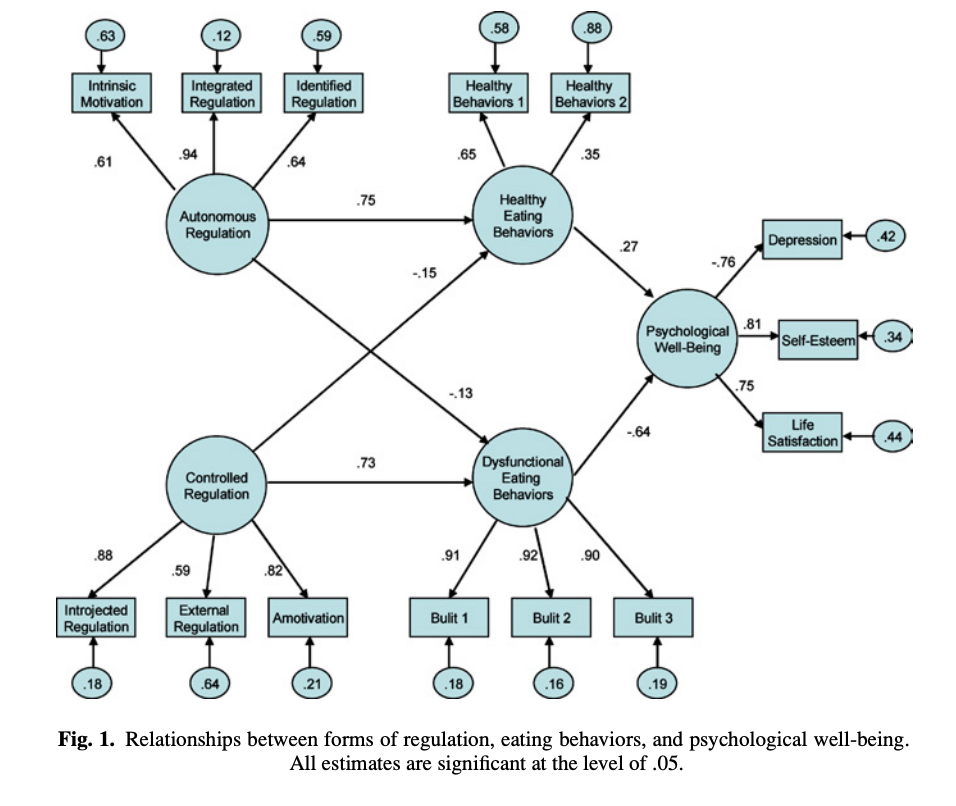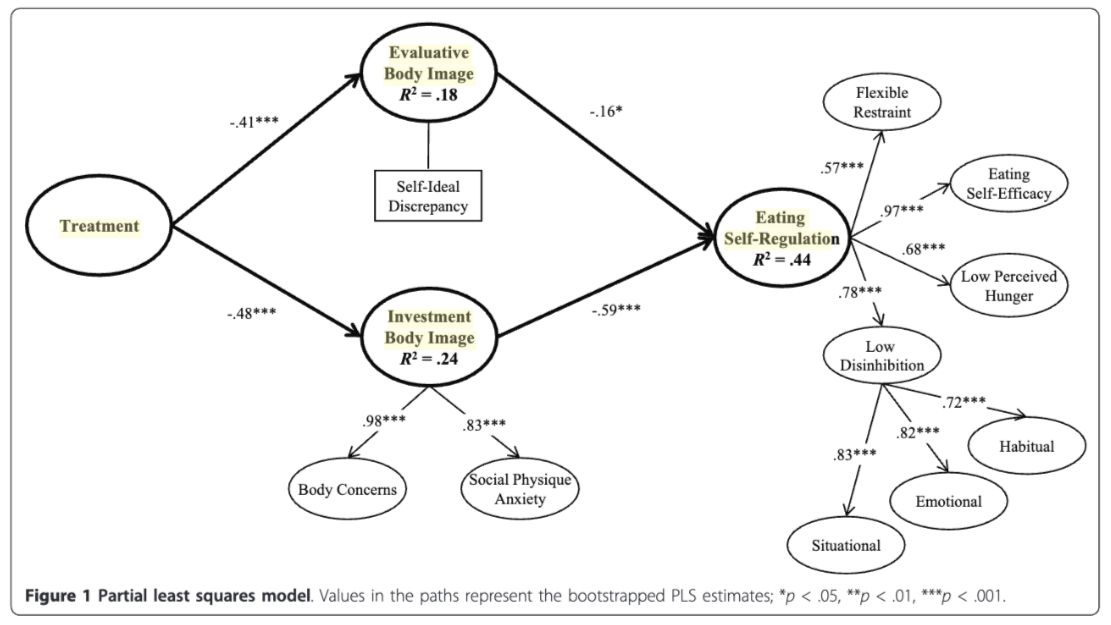
A Healthy Body Image Is Key to Healthy Eating. Here's Why.
May 15, 2023How Improving Your Body Image Can Help You Eat Better
You want to make healthier food choices and be more confident in your body. In order to get a handle on your eating, you should commit to a nutrition plan and be pretty strict about it, right? Working on your body image is a sign you’re giving up, surely?
Not at all.
In fact, the opposite is true.
You may be scared that you’ll let yourself go, but the reality is that improving your body image will help you to eat better. If you’re struggling to be consistent, and you’ve tried all the diets, improving your body image could be the missing piece.
How come?
Research shows that poor body image has been consistently related to unhelpful eating behaviours that are likely to undermine successful weight management [1]. Results from longitudinal studies have identified body dissatisfaction to be the single most important cause of dieting and disordered eating [2], [3]. When we don’t like how we look, we are more likely to feel pressure to diet and rigidly control our eating behaviours. Not only does this damage our relationship with food, but (ironically) leads to more uncontrolled and binge eating [4]. And these binge episodes often lead to feelings of guilt and disparaging self-criticism, ruining our mood and further putting us at risk of repeating the cycle [5].
It's way harder to eat healthy when our eating behaviours are determined by external sources of motivation, like chasing societal standards of appearance ideals and trying to look good for others [6]. When we are motivated to eat well due to an internal desire to treat ourselves well and support our body’s needs, we are more likely to be successful.
 [7]
[7]
How to break the cycle
‘But I don't like how I look. I want to change my body’.
I hear you. Most of my clients feel exactly the same way.
That’s totally understandable, and you don’t have to totally give up your desire to look different.
But it’s important to know that if you’re currently stuck in the binge-restrict cycle, focusing on a physique change is going to bring you further away from your goal of improving your eating behaviours.
And liking how you look is not the biggest motivator of healthier eating.
To explain why, it helps to understand that body image attitudes have two components [8]:
- Evaluative - our levels of satisfaction or dissatisfaction with how we look
- Investment - how important our body is to our sense of self worth
Research indicates that becoming more satisfied with your appearance is actually not the biggest predictor of improved eating behaviours. Body image investment has a greater (and unique, independent) contribution to disturbed eating attitudes, above and beyond levels of body dissatisfaction [9]. Placing a lot of importance on how you look is associated with negative moods, which could result in increased emotional eating, disinhibition and perceived hunger, and a more rigid approach to eating [10]. In addition, body image investment has more adverse consequences than evaluative body image to your psychological wellbeing. [11]
[11]
In a 12 month behavioural weight management program targeting eating behaviours and body image, researchers found that relative to evaluative body image, the change in body image investment was more strongly related to the changes in eating behaviour [11]. This means that reducing the levels of concern with body image, rather than simply reducing body dissatisfaction, is more likely to help you eat better.
They concluded that:
Overall, body image change appears to be a valid mechanism through which the regulation of eating behaviour can be improved in behavioural weight management interventions, at least in women.
Whilst reductions in body dissatisfaction can go hand in hand with reductions in investment, that’s not always the case. In fact, I’ve worked with a number of clients who have previously lived in a larger body, lost weight, received positive reinforcement… and developed very rigid eating and exercise behaviours. Why? Because their new body became an important part of who they are.
You can listen to THIS podcast by a previous client, Barbara, and her partner James, discussing how Barbara’s poor relationship with food had a negative impact on their relationship. For Barbara, clarifying her values and improving her body image were the key to finding balance between taking care of herself and showing up as the fun-loving partner that she wanted to be.
So here’s the bottom line.
By reducing the importance of your body in your life, you will develop better regulation of your eating behaviours.
Action Steps To Take Right Now
- Understand the concept of body image (i.e., a subjective construct, independent of physical appearance) and recognise the social and personal roots of your own body image development
- Establish more realistic goals and expectations for yourself and your weight/body
- Challenge your unhelpful assumptions about your appearance and its salience to your life and self-worth
- Move away from the idea that you must look different to be happier
If you want to end the love/hate relationship with your body, and consistently make food choices that support your health without the guilt or obsession, the Build Body Confidence Course is for you.
If you are a health and fitness professional who works with individuals to improve their diet and exercise behaviours, understanding body image is key to their success. Check out the Body Image Fundamentals course to get educated.
References
[1] Pelletier LG, Dion SC: An examination of general and specific motivational mechanisms for the relations between body dissatisfaction and eating behaviors. Journal of Social and Clinical Psychology 2007, 26:303-333.
[2] Polivy, J. and Herman, C.P. (2002). Causes of eating disorders. Annual Review of Psychology, 53,187–213.
[3] Shisslak, C. M., & Crago, M. (2001). Risk and protective factors in the development of eating disorders. In J.K. Thompson & L. Smolak (Eds.),Body image, eating disorders, and obesity in youth: Assessment, prevention, and treatment(pp.103–126). Washington, DC: APA.
[4] Stice E: Risk and maintenance factors for eating pathology: a meta-analytic review. Psychol Bull 2002, 128:825-848.
[5] Fairburn, C. G. (1997). Eating disorders. In D.M. Clark & C. G. Fairburn (Eds.),Science and practice of cognitive behavior therapy (pp. 209–241). Oxford, UK: Oxford University Press.
[6] Pelletier, L.G., Dion, S.C., Slovinec-D'Angelo, M. et al. Why Do You Regulate What You Eat? Relationships Between Forms of Regulation, Eating Behaviours, Sustained Dietary Behaviour Change, and Psychological Adjustment. Motivation and Emotion 28, 245–277 (2004). https://doi.org/10.1023/B:MOEM.0000040154.40922.14
[7] ibid.
[8] Cash, T. F., Melnyk, S. E., & Hrabosky, J. I. (2004). The assessment of body image investment: an extensive revision of the appearance schemas inventory. The International journal of eating disorders, 35(3), 305–316. https://doi.org/10.1002/eat.10264
[9] Cash TF, Phillips KA, Santos MT, Hrabosky JI: Measuring “negative body image": validation of the Body Image Disturbance Questionnaire in a nonclinical population. Body Image 2004, 1:363-372.
[10] Cash TF: Cognitive-Behavioral Perspectives on Body Image. In Body image: A handbook of theory, research, and clinical practice. Edited by: Cash TF, Pruzinsky T. New York: Guilford Press; 2002:38-46.
[11] Carraça, Eliana & Nunes Silva, Marlene & Markland, David & Vieira, Paulo & Minderico, Cláudia & Sardinha, Luis & Teixeira, Pedro. (2011). Body image change and improved eating self-regulation in a weight management intervention in women. The international journal of behavioural nutrition and physical activity. 8. 75. 10.1186/1479-5868-8-75.
Trying To Grow Your Coaching Business?
Join the Beneath The Surface newsletter to receive weekly tips to grow a meaningful coaching business, make more money and build your dream life.
If it's shit, you can always unsubcribe.

